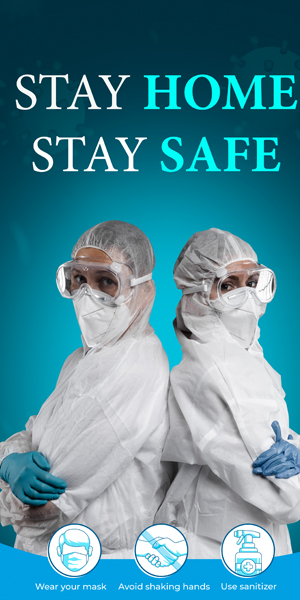When people think of private duty nurses, they often envision essential support like medication reminders, help with bathing, and assistance with mobility. While these basic services are foundational, private duty nursing encompasses a much broader scope. Today’s nurses are highly trained professionals capable of delivering a wide range of services that go far beyond routine care—and many of them can be life-changing for individuals recovering from illness, living with chronic conditions, or simply aging in place.
Here are several advanced and specialized services a private duty nurse can provide to elevate the quality and depth of care at home.
1. Skilled Nursing and Medical Management
One of the most significant advantages of hiring a private duty nurse is access to skilled nursing services right at home. These include tasks like wound care, catheter and ostomy maintenance, managing IV therapies, administering injections, and monitoring complex medication regimens. Many of these services typically require trips to a clinic or hospital, but with a trained nurse on hand, they can be delivered comfortably and safely at home. For patients recovering from surgery or managing chronic illnesses such as diabetes, COPD, or heart failure, this medical oversight is critical to avoiding hospital readmissions.
2. Post-Hospitalization Support
Transitioning from hospital to home can be overwhelming. A private duty nurse plays a pivotal role in bridging this gap. They can coordinate follow-up appointments, monitor for complications or infections, ensure medications are taken correctly, and assist with physical rehabilitation routines. This continuity of care helps individuals heal faster and reduces the risk of setbacks. For patients with limited family support, the presence of a nurse ensures that no detail is overlooked during recovery.
3. Chronic Disease Monitoring and Management
Chronic conditions such as hypertension, Parkinson’s disease, ALS, or arthritis often require long-term management and frequent assessment. A private duty home nurse can track vitals, document trends, communicate with primary care providers, and adjust daily routines as needed. They serve as the frontline defense in spotting changes in condition that could require early intervention. This proactive care not only improves outcomes but also empowers patients to manage their conditions more confidently.
4. Dementia and Alzheimer’s Care
Caring for someone with dementia or Alzheimer’s disease demands a special kind of training and patience. Private duty nurses experienced in memory care know how to maintain safety, reduce confusion, and create calming routines that foster familiarity. They’re also skilled in managing behaviors like wandering, agitation, or sundowning. In addition to keeping the client safe, these professionals also provide essential support to family members, offering education, coping strategies, and respite care when needed.
5. Palliative and End-of-Life Support
For individuals with terminal illnesses or those entering the final stages of life, comfort and dignity become the top priorities. Private duty nurses provide compassionate palliative care focused on symptom relief, emotional support, and enhancing quality of life. They work closely with hospice teams and families to ensure pain is well managed, spiritual and emotional needs are addressed, and that patients can spend their remaining days in peace and comfort. Their presence can be invaluable during this sensitive and often overwhelming time.
6. Nutritional Support and Special Diets
Nutrition plays a critical role in health and healing. Private duty nurses can monitor dietary intake, help manage tube feedings, and ensure that any dietary restrictions—such as low-sodium, diabetic-friendly, or allergen-free plans—are followed consistently. For patients struggling with appetite, swallowing difficulties, or weight loss, nurses can collaborate with dietitians and physicians to adjust meals accordingly. Their oversight helps reduce risks of malnutrition, dehydration, or digestive complications.
7. Health Education and Advocacy
Education is a powerful tool in healthcare, and private duty nurses often serve as educators for both clients and their families. Whether it’s teaching proper insulin administration, demonstrating safe mobility techniques, or helping loved ones understand a new diagnosis, nurses offer clear, compassionate instruction that empowers everyone involved. They also advocate for their clients within the broader healthcare system—communicating with doctors, coordinating services, and ensuring that the patient’s needs are fully understood and respected.
8. Emotional and Social Support
Beyond medical care, private duty nurses provide human connection. For individuals who live alone or have limited social interaction, regular visits from a familiar caregiver can reduce feelings of isolation, anxiety, or depression. Nurses can offer companionship, listen to concerns, encourage participation in meaningful activities, and even accompany clients on short outings or errands when appropriate. This emotional layer of care is often overlooked—but it’s one of the most impactful.
While basic tasks like medication reminders and hygiene support are essential, the role of a private duty nurse extends far beyond these foundational services. From clinical interventions and chronic disease management to emotional support and family education, these professionals bring hospital-level care into the comfort of home. As healthcare continues to shift toward patient-centered, in-home models, private duty nurses are becoming an indispensable part of maintaining dignity, safety, and quality of life for aging and medically fragile individuals.
If you’re evaluating care options for a loved one, it’s worth exploring just how comprehensive—and personalized—private duty nursing can be.








Leave a Reply